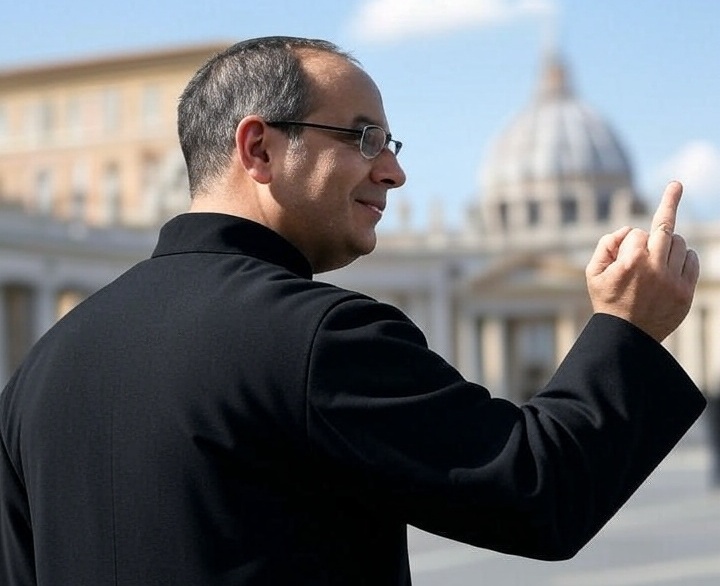When the Holy See forbade the Institute of the Incarnate Word (IVE) to admit new novices, it was not a minor gesture: it was an extreme measure in the face of the abuses, totalitarian control and psychological manipulation that weigh on this congregation. The message was unequivocal: without novitiates, there are no new religious.
But the IVE has never been characterized by obedience. On the contrary, it has made cheating its method of survival. This time, their invention borders on the grotesque: they admit candidates directly to the first year of philosophy, with the promise that the novitiate will be completed in three years, just when, according to them, the Vatican’s ban will have ended.
A fraud with a calendar
The plan is simple: while the sanction lasts, the young people are not “novices”, but “philosophy students”. And when the ban is lifted, they are passed off as the formal novitiate, as if the previous three years had not counted. In practice, philosophy becomes a covert novitiate, a limbo that holds aspirants captive and secures the quarry of the institute.
The problem is obvious: canonically, their votes will not be valid. The novitiate is an indispensable requirement for professment. But the IVE does not care about that: what is important is to retain young people, indoctrinate them and mold them in blind obedience, even if everything is legally invalid.
To close the circle, they are told that the novitiate will come after the three years of philosophy—precisely when, according to the IVE, the Vatican prohibition will expire—turning the sanction into a mere technical pause with no real effect on recruitment.
Institutionalized hypocrisy
The play reveals a double-edged hypocrisy:
- Hypocrisy in the face of Rome: they pretend to abide by the prohibition while emptying it of meaning.
- Hypocrisy in the face of young people: they are being sold the illusion of a legitimate vocation, when in reality they are being used as pawns in a battle against the Holy See.
The IVE has turned feigned obedience into a specialty. Each disciplinary measure is carried out only in appearance:
- New novices are forbidden: they appear as “philosophy students”.
- Mass recruitment is questioned: training houses are multiplying.
- Sectarian methods are denounced: they respond with victimization campaigns.
In all cases, the pattern repeats itself: verbal obedience, actual disobedience.
Creole liveliness vs. Spanish bureaucracy
This fraud is, in the end, a move of Argentine liveliness: twist the law, find the crack, bend the rules without breaking them completely. On the other hand, the pontifical commissioner – a Spaniard trapped in deadlines, reports and bureaucracies – seems to be advancing with an exasperating, almost naïve slowness, in the face of the calculated mischief of the institute.
The contrast is brutal: while the IVE maneuvers with survival reflexes and a cunning bordering on cynicism, the commissioner responds with diplomatic dossiers. Result: the IVE wins, Rome loses.
Conclusion: credibility at stake
The trick of the “deferred novitiate” is not a solution, but a mockery. It is the confirmation that the IVE does not seek to train religious for the Church, but soldiers loyal to their own cause, even if to do so they must lie, manipulate and disobey.
The question is how much longer Rome will endure this set of masks. Because while the Church hesitates, the IVE consolidates its dominance. And the conclusion imposes itself: in the face of Creole liveliness, lukewarm measures are useless. The only coherent response is the one that many inside and outside the Church are already demanding: the definitive dissolution of the Institute of the Incarnate Word.

Leave a Reply